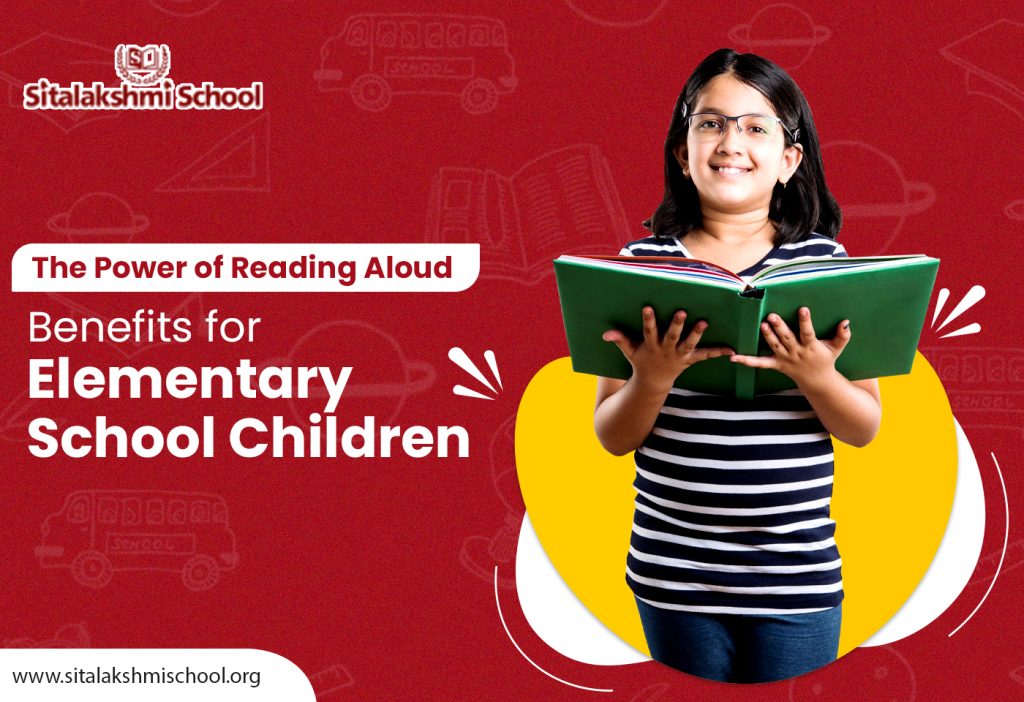Reading is a fundamental skill that lays the foundation for a child’s academic success and lifelong learning. One powerful way to nurture this skill is through the simple yet effective practice of reading aloud to elementary school children. In this blog post, we will explore the numerous benefits of reading aloud and why it should be an integral part of your child’s daily routine.
Language Development:
Reading aloud to children exposes them to a wide range of vocabulary and language structures. They hear words and phrases that may not come up in everyday conversation, expanding their language skills. Exposure to well-written literature helps them develop a more sophisticated understanding of language, making it easier for them to communicate effectively.
Cognitive Development:
Reading aloud in school engages children’s cognitive abilities. As they follow the storyline, they sharpen their memory and attention span. They also learn to make predictions about the plot and characters, which improves critical thinking skills. Reading aloud plays a pivotal role in preparing children to become independent readers. They learn the basics of reading, such as the left-to-right directionality of text and the fact that words are composed of letters and have meaning. This foundational knowledge eases their transition into reading on their own.
Vivid Imaginations:
When children listen to stories, they are transported into the world of the book. They use their imagination to visualize characters, settings, and events, fostering creativity and a love for storytelling. This imaginative exercise is essential for their overall cognitive development. Many books explore complex emotions and situations. When parents or teachers read aloud and discuss these emotions with children, it helps them understand and manage their own feelings better. It also teaches empathy, as children can relate to the characters in the story.
Bonding Time:
Reading aloud is an excellent opportunity for quality bonding between adults and children. It creates a cozy and intimate atmosphere where children feel secure and loved. The positive associations formed during these moments contribute to strong parent-child relationships. Exposure to books and storytelling through reading aloud can instill a deep passion for reading. When children associate books with enjoyable and rewarding experiences, they are more likely to become lifelong readers.
Improved Listening Skills:
Active listening is a skill that is crucial for academic success. When children listen to stories, they must pay attention to details, follow complex narratives, and remember information. These skills are transferable to the classroom, where they can excel in listening and comprehension tasks. Reading aloud encourages children to ask questions, make predictions, and discuss the story with adults or peers. This interactive communication helps develop their verbal skills and the ability to express their thoughts and ideas effectively.
Academic Success:
Numerous studies have demonstrated a positive correlation between regular reading aloud and academic success in school. Children who are read too regularly tend to have larger vocabularies, better comprehension skills, and a more solid foundation for reading and writing when they enter school.
Reduced Screen Time:
In an age of digital devices and screens, reading aloud offers a screen-free alternative that is both entertaining and educational. It encourages children to engage with books and interact with others in a meaningful way, reducing the time spent in front of screens.
In conclusion, reading aloud to elementary school children is a powerful tool for their holistic development. It nurtures language skills, cognitive abilities, and emotional intelligence, while also fostering a lifelong love for reading. By making reading aloud a regular part of your child’s routine, you provide them with a strong foundation for academic success and a deep appreciation for the world of books.

